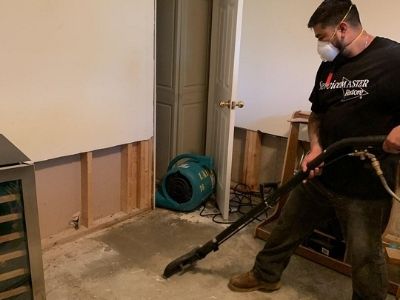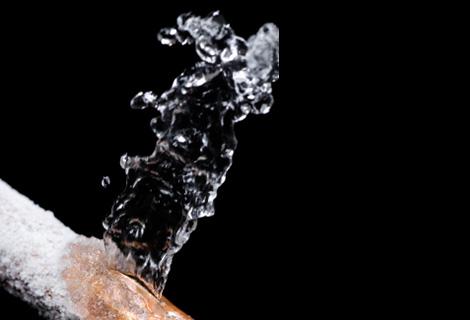Quick Guide: Identifying and Fixing Ruptured Pipes in your house
Quick Guide: Identifying and Fixing Ruptured Pipes in your house
Blog Article
The publisher is making several great pointers related to How to install a dishwasher safely overall in this content underneath.

A ruptured pipeline is a major emergency; you can only stand as you enjoy water you pay dearly to rejoin with the earth. In even worse instances, you discover a swimming pool on your kitchen flooring, which is a great trip threat, particularly if you have youngsters around. If the pipe that ruptured was in your walls, problem: you may need to paint that entire section.
Just how can a tragedy like a burst pipeline be avoided and also managed? Well, by listening to your professional emergency plumbings and also complying with these regulations.
How do I recognize when my pipes have burst?
Changing water pressures
Pipes do not just burst in a day. You might have discovered that your kitchen area tap or shower doesn't run promptly when you turn the faucet. It may stop for a few seconds and afterwards blast you with more force than common.
In other circumstances, the water might appear regular at first, after that drop in stress after a few seconds.
Damp wall surfaces and water spots
Before a pipeline bursts, it will leakage, most times. If this relentless leaking goes unnoticed, the leakage might finish right into a large laceration in your pipe. One simple means to avoid this emergency is to watch out for wet walls advertisement water stains. These water spots will lead you right to the leak.
Puddles under pipelines and also sinks
When a pipe ruptureds, the discharge forms a pool. It might appear that the pool is expanding in size, as well as despite how many times you mop the pool, in a couple of mins, there's another one waiting to be cleaned up. Often, you may not have the ability to map the puddle to any type of noticeable pipes. This is a sign to call a professional plumber.
Untraceable trickling sounds
Pipeline bursts can occur in one of the most undesirable places, like within concrete, inside walls, or under sinks. When your home goes quiet, you may have the ability to listen to an aggravatingly persistent leaking sound. Also after you have actually inspected your shower head and also kitchen area tap, the trickling might proceed.
Beloved viewers, the trickling might be originating from a pipeline inside your wall surfaces. There isn't much you can do concerning that, other than inform a specialist plumber.
Turn off the Water
When water freezes, it broadens in volume by regarding 9 percent. And it expands with incredible force: The pressure inside pipes may go from 40 pounds per square inch to 40,000 psi! No pipeline can hold that much stress, so it bursts. The break may occur where the ice forms, yet more frequently, it occurs where water stress discovers a weak spot in the pipeline. That may be inches or even feet from the icy area. Find the water shutoff valve as well as turn off the water to stop even more damage. You might likewise require to turn off the electrical energy as well, relying on where the leaks occurs and also exactly how big it is.
Infected water
Many people think a burst pipe is a one-way electrical outlet. Quite the contrary. As water spurts of the hole or tear in your plumbing system, pollutants find their method.
Your water may be infected from the source, so if you can, check if your water storage tank has any kind of issues. However, if your alcohol consumption water is supplied as well as purified by the local government, you should call your plumber quickly if you see or smell anything amusing in your water.
What do I do when I find a ruptured pipe?
Your water meter will certainly continue to run also while your water wastes. To minimize your losses, discover the main controls as well as turn the supply off. The water mains are an above-ground structure beside your building.
How to Fix & Detect a Leaking Pipe
How Do I Know if a Pipe is Leaking?
Leak detection tests can help you determine if your pipe has a leak. Even if you don’t see an apparent leak, you should still conduct leak detection tests regularly to save water and money—and prevent major damage to your home.
Water meter. It can be helpful to figure out what your usual water meter usage numbers are and then monitor them regularly. To monitor your meter, first, turn off all water faucets in your home. Check the meter and write down the numbers. In a few hours, check the meter again. If the numbers have changed, you have a leak. Water gauge. Use a water gauge to test your water pressure. Your showerhead should produce a certain amount of water pressure based on its model and design. If the pressure is lower than it is supposed to be for that specific showerhead, your home likely has a leak. Puddles. Look inside your bathroom, laundry, and kitchen sink cabinets. Puddles around the cabinets or around toilets, tubs, showers, and washing machines indicate the presence of a leaking pipe. You may also notice loose tiles, peeling or flaking paint, or mold caused by water accumulation. Napkin test. Even if you don’t see any puddles, you may still have a leak. You can test for water leaks in the bathroom, laundry, and kitchen by wiping below-sink connections with a napkin, paper towel, or piece of toilet paper. If it becomes damp, you probably have a leaking pipe under the sink. Discolored walls. Walls that are discolored—usually with brown or yellow stains—or bulging might mean that they have been impacted by water damage caused by a leaking pipe. Smell. A leaky pipe will create sitting water, and over time, that water may develop a musty smell. If your home smells musty, but you can’t locate the source, it may be due to a leak. Steps for Fixing a Leaking Pipe
A leaky drain can be remedied by tightening the pipe base, replacing the drain seal, caulking the rim, and tightening the pipe nut. Similarly, a leaking toilet pipe can be treated by tightening the packing nut. You may also need to replace the valve. A leaky faucet may just need tightening or replacement of the washers. If that doesn’t work, consider replacing your faucet. If your pipe has a hole in it, you may want to use a pipe leak sealer or pipe leak tape. This quick fix for water pipe leaks can also temporarily fix a copper pipe leak. https://www.ahs.com/home-matters/quick-tips/how-to-tell-if-pipes-are-leaking/

Do you really like more info about How to Prepare for Your Dishwasher Installation? Put a review below. We'd be interested to know your ideas about this write up. Hoping that you come back again in the near future. Do you know about someone else who is curious about the niche? Take a moment to share it. Thanks for going through it.
Visit Homepage
Report this page